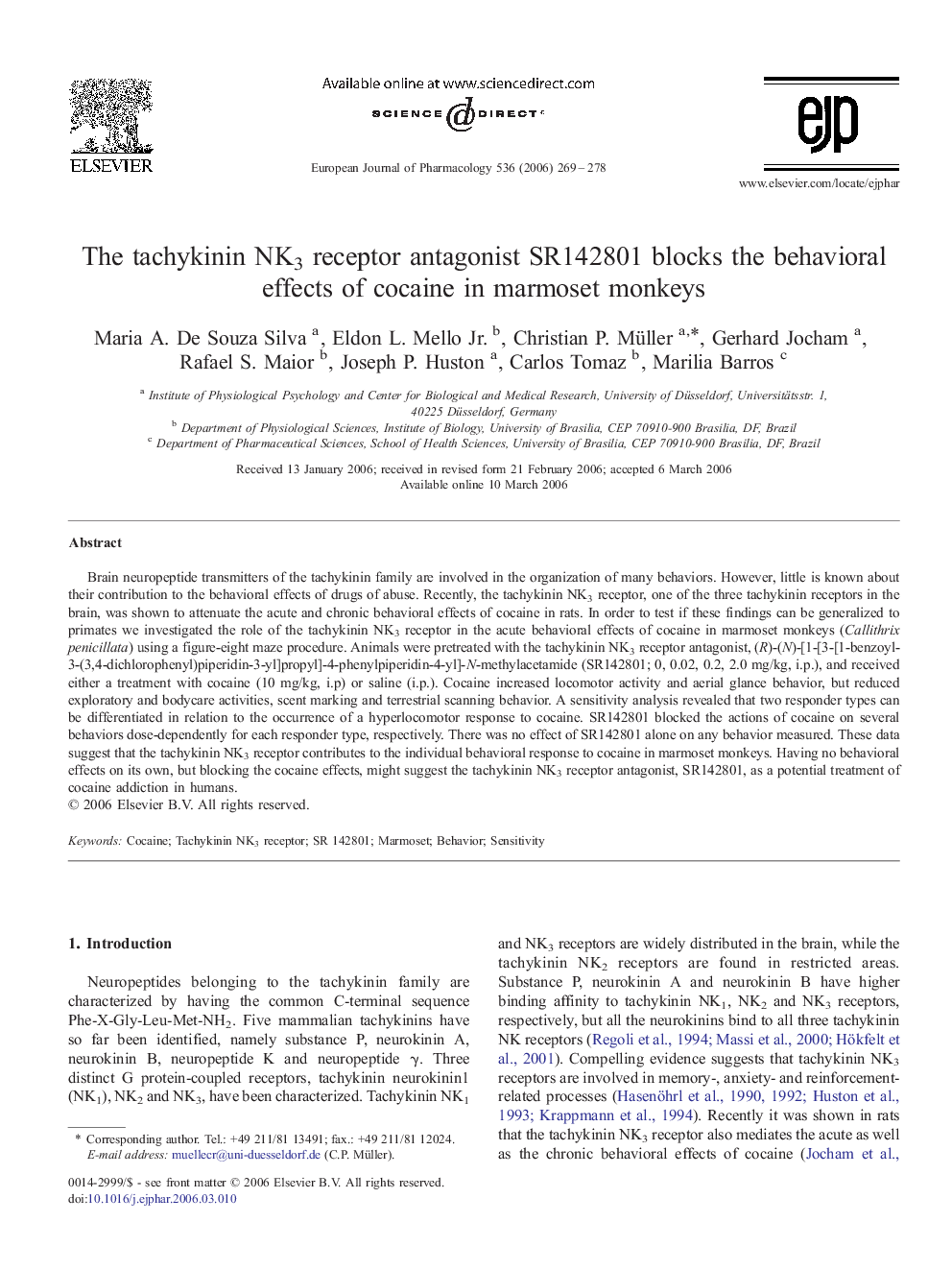| Article ID | Journal | Published Year | Pages | File Type |
|---|---|---|---|---|
| 2537214 | European Journal of Pharmacology | 2006 | 10 Pages |
Brain neuropeptide transmitters of the tachykinin family are involved in the organization of many behaviors. However, little is known about their contribution to the behavioral effects of drugs of abuse. Recently, the tachykinin NK3 receptor, one of the three tachykinin receptors in the brain, was shown to attenuate the acute and chronic behavioral effects of cocaine in rats. In order to test if these findings can be generalized to primates we investigated the role of the tachykinin NK3 receptor in the acute behavioral effects of cocaine in marmoset monkeys (Callithrix penicillata) using a figure-eight maze procedure. Animals were pretreated with the tachykinin NK3 receptor antagonist, (R)-(N)-[1-[3-[1-benzoyl-3-(3,4-dichlorophenyl)piperidin-3-yl]propyl]-4-phenylpiperidin-4-yl]-N-methylacetamide (SR142801; 0, 0.02, 0.2, 2.0 mg/kg, i.p.), and received either a treatment with cocaine (10 mg/kg, i.p) or saline (i.p.). Cocaine increased locomotor activity and aerial glance behavior, but reduced exploratory and bodycare activities, scent marking and terrestrial scanning behavior. A sensitivity analysis revealed that two responder types can be differentiated in relation to the occurrence of a hyperlocomotor response to cocaine. SR142801 blocked the actions of cocaine on several behaviors dose-dependently for each responder type, respectively. There was no effect of SR142801 alone on any behavior measured. These data suggest that the tachykinin NK3 receptor contributes to the individual behavioral response to cocaine in marmoset monkeys. Having no behavioral effects on its own, but blocking the cocaine effects, might suggest the tachykinin NK3 receptor antagonist, SR142801, as a potential treatment of cocaine addiction in humans.
